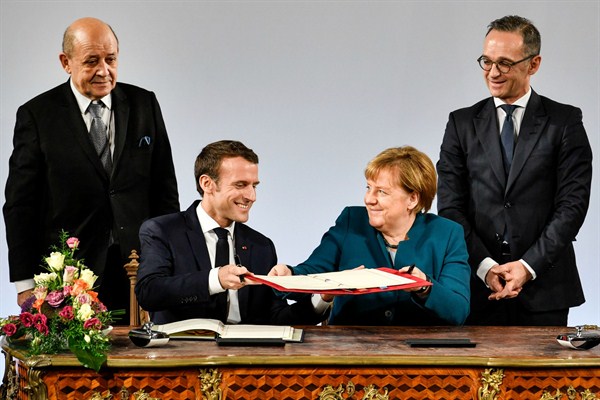Since 1945, America’s democratic allies around the world have relied on the United States to champion and defend an open, rules-based international system, grounded in liberal values and multilateralism. Since January 2017, U.S. President Donald Trump has repudiated this role and turned the United States into a revisionist power, mimicking China and Russia in efforts to reconfigure important aspects of the global order. In a desperate attempt to hold the line, France and Germany will officially launch an “Alliance for Multilateralism” at the opening of the 74th United Nations General Assembly later this month.
The architects of this new alliance hope to leverage Western democracies’ combined weight and influence to reinvigorate international cooperation. German Foreign Minister Heiko Maas first broached this possibility in a July 2018 speech in Tokyo. For too long, he suggested, Germany and Japan had been “rule takers.” In a world that could no longer count on the U.S., that needed to change. “If we pool our strengths,” Maas said, “perhaps we can become something like ‘rule shapers’ who design and drive an international order that the world urgently needs.”
Maas’ speech resonated not only in Japan but also in France, Germany’s longtime partner in European integration efforts. At the Munich Security Conference this past February, Maas and French Foreign Minister Jean-Yves Le Drian co-authored an op-ed in the German daily Suddeutsche Zeitung. The “rules-based” multilateral order, they explained, was experiencing its “gravest crisis” since 1945, thanks to resurgent power politics, rising nationalism, and global political and economic fragmentation. “To counter this trend, like-minded states must make common cause and redouble their efforts to promote multilateralism.” Two months later, Maas and Le Drian announced that they would launch their Alliance for Multilateralism in September, when world leaders convene in New York.

